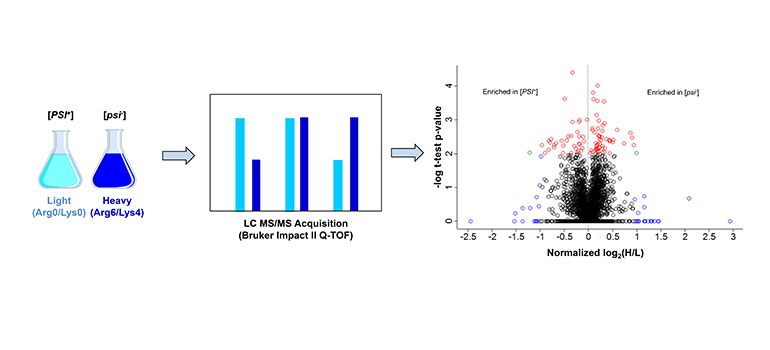Week #4, Friday, June 19 from noon-1:00 pm in LSC 3.
Dr. Patrick Hau Wing Chan, Postdoctoral Fellow in Thibault Mayor Lab presents,
“Proteomic profiling of the [PSI+] yeast prion strain by quantitative mass spectrometry”
Prions proteins can adopt a second conformation that induces the formation of amyloid fibrils that are responsible for the transmissible spongiform encephalopathy in mammals. In contrast to mammalian prion, yeast prion proteins are controversially considered as advantageous for natural survival rather than being toxic. [PSI+] describes the yeast prion state in which the translational termination factor, Sup35, forms amyloid fibrils, resulting in an increase of non-sense suppression and giving a distinct phenotype. Due to non-sense suppression in [PSI+], part of its proteome might have an increased amount of C-terminal extended sequences, which could potentially affect the stability of the proteins positively or negatively. By differentiating the proteomes between [psi-] and [PSI+] states and identifying the C-terminal extended proteins, it would provide us some insights for what biological pathways are affected and how they provide survival advantages for being in prion state.
